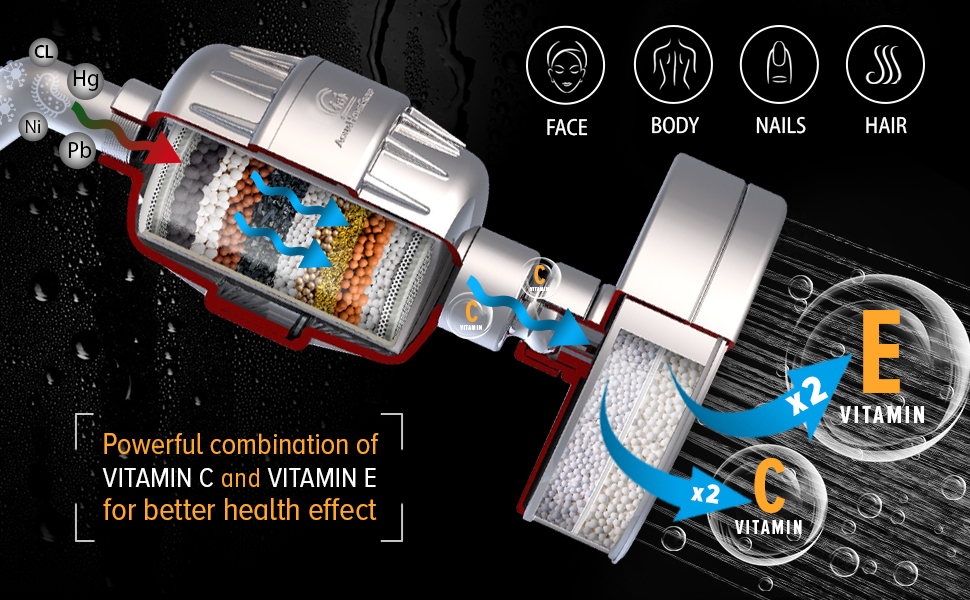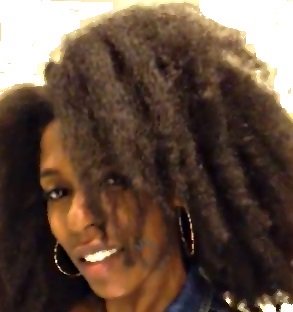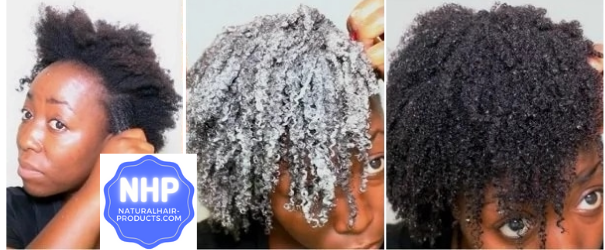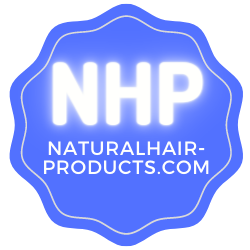17 “How to Soften Coarse 4C Hair”
HOLY GRAIL Moisture Regimen Methods
- NHP
- Type 4C Hair 101
- How to Soften Coarse 4c Hair
Sometimes it’s hard to understand how to make coarse hair soft and silky-feeling, right?
I know sis, that’s why this COMPLETE tutorial on how to soften coarse 4C hair will get you the best feeling, softest, ready-to-explode with growth type 4 hair you can achieve.
And YOU CAN achieve it!
Because not only will I show you 5 PROVEN hair-softening regimens, we’ll discuss the best moisturizer for 4C hair, the best curling cream for 4C hair, and show you what to do when it seems your best hair softening products for coarse hair aren’t working for you anymore.
So look…
Go ahead bookmark this Ultimate Tutorial right now, because this bad girl is jam-packed with goodies and it’s not the cookie-cutter coily 4C hair advice you’ll see in most places.
You WILL learn how to make 4C hair soft to the touch today…
And each hair-softening technique will be tagged with:
- DAILY
- WEEKLY, or…
- MONTHLY
To make it clear for you how each how to soften coarse 4C hair strategy should fit into your type 4 hair-softening regimen and showing how you can make your natural hair soft without relaxer.
Why Even The Best “How to Soften Coarse 4C Hair” & Moisturizing Tips Won’t Work FOR SOME
I don’t wanna hurt your feelings, sis…
STILL THOUGH:
You need to hear me good….
I want you to enjoy amazingly beautiful, soft and manageable natural hair. So, I need you to USE these how to soften coarse 4C hair tips, methods and regimen adjustments that I KNOW WORK. I’ve seen it, I’ve done it.
So many naturals don’t realize that they’re “lazy naturals” especially when first going natural, and sadly, that’s what’s holding them back from their BEST LOOKING and FEELING HAIR EVER.
You need to avoid making this common mistake like the plague.
YOU SEE:
They want to know how to make coarse hair soft and silky but when you explain what softens black natural hair and the PRACTICES involved and how often you need to wash 4C hair, they start looking for quick fixes and their hair stays forever crunchy, no matter how much hair growth oil that they slap on. And they are wondering why.
Promise me you won’t make that hair-harming error. Follow these routines that you’re about to learn how to perform for the most enjoyable hair ever!
Holy Grail Regimen: Routines & Products to Soften Natural Hair - How to Manage Thick Coarse Hair
So let’s get you the softest and most moisturized 4C hair ever. Once you feel how soft and manageable your hair feels after you follow these regimen rules and pro tips, you’ll never look back.
I guarantee it. So let’s dive in and learn how to soften coarse 4C hair!
#1 Your Hair Needs Water - Spritz With an Atomizer Daily & Eat Juicy Fruits

This is THE MOST IMPORTANT rule for how to soften coarse 4C hair, and it’s one that many ignore. If you don’t like spritzing your hair, you need to change your mentality, like, QUICK-FAST!
Because you can use all the hair moisturizer cream in the world, but if your hair AND BODY is properly hydrated you are going to have serious hair problems that WILL lead to breakage, and lack of length retention. Because water is the best moisturizer for 4C hair (for 4B, 4A, 3C and every other hair type too).
Think of water as God’s very own hair-softening product for coarse hair given to you for free.
Your natural hair needs water, the way popcorn needs butter, ha!
Water is the premiere and 1ST PLACE WINNER natural hair moisturizer for dry hair and please believe, you should never run a comb through your hair without applying some water to it first.
So here’s how to soften coarse 4C hair with pure water:
You should spritz water over your hair daily, paying special attention to your ends (I explained how important your ends are in my tutorial about how to stop excess hair breakage).
Now remember:
Your hair spritzer bottle is a daily tool, and you will get much more benefit and enjoyment from investing in premiere hair tools. Why waste your energy and time with inferior hair tools for poor results?
You want to avoid that…
… because of that fact, I suggest that you invest in a high-performance, and durable atomizer aerosol water spray bottle for kinky natural hair.
Benefits of Atomizer Mist Spray Water Bottle for Softening Coarse 4C Hair
- An atomizer aerosol water spray bottle truly ‘refreshes’ lightly, giving just the right amount of hydration for my curls to get revived. When using a normal spray bottle, the stream can be too heavy and water often ends up dripping & getting your hair soggy.
- Helps give you poppin’ day 2 and day 3 curls with less work and fuss each morning.
- Because of the 360* spraying ability, you can easily reach any section of your hair without any awkward acrobatics!
- It refreshes big sections of kinky 4C hair in one go, much faster and less messy. This is how to soften coarse 4C hair.
As mentioned before, the best spray bottle for kinky curly hair may be expensive, but like a diffuser, it’s a one-time investment and a very good one.
If you need to quickly refresh your wash-n-go or another kinky curly hairstyle, you could use something like the flairosol mist sprayer (although some ladies are disappointed that the Flairosol spray because IT IS NOT continuous spray...read the reviews)
STILL THOUGH:
Don’t throw out your normal spray bottle because sometimes YOU NEED a soggy drenching for restyling purposes.
If I wanted to re-wet your natural hair, or rake in your favorite styling cream or, for example, some TGIN Curl Bomb gel again mid-week between washes – for that you would use a normal spray bottle.
PRO TIP: If you have hard water (which you can test with a water test strips or a water test meter) do not mist your hair with that. Instead use distilled water, or purified water. And if you’re wondering how to make 4C hair softer in winter months you can add in a few drops of glycerin to your spritz to absorb more moisture.
To stay truly hydrated, you should be eating large quantities of juicy fruits every...single...day. Why?
Because eating juicy fruits is far more hydrating to the cells in your body than drinking water, the water in whole fruit (not fruit juice) is called structured water because the cellular structure of water in fruit is perfectly designed to thoroughly hydrate your body cells.
The structure of bottled water (distilled, reverse osmosis, whatever…) is NOT perfectly structured to quench your body and your body has to work to restructure it first, before getting any level of hydration from it. And the hydration from water will never reach the level of juicy fruits like pineapple, watermelon, mangoes, etc.
I guarantee you, if you eat 100 ounces of watermelon a day, you wouldn’t need to drink water. And you’d probably lose weight, get healthier & feel better on top of that!
If you, for some reason, can’t get 50 OZ of juicy fruits a day, do the best you can and get the commonly stated 6-8 glasses of water each day which is better than nothing, although not optimal.
The Secret to Having Soft Natural Hair - Showing You What's In My Spray Bottle
#2 - Have a CONSISTENT 4C Natural Hair Regimen

To soften black natural hair you must have and PRACTICE a consistent natural hair regimen, you cannot skip deep conditioning treatment masks. If you want your hair to be soft, you have to follow the rules to soft 4c hair. it's that simple. You have to have certain, daily, weekly and monthly routines and regimens that you follow.
What is the definition of a “hair regimen”?
The definition of having a hair regimen is you have a set plan of actions and products that you use on a regular basis. That’s how to soften coarse 4C hair.
You can't just ignore your hair and its needs, if you do, it will just remain hard and difficult to manage. And this is what makes many women feel like they don't like their hair or they even hate having type 4C hair or kinky natural hair in general, like 4A and 4B as well.
If you are not consistent, you will fail.
And don’t have a hair regi-maybe, instead of a true regimen!
Meaning that you follow your regimen this month and then you don't next month. You will struggle with how to properly moisturize natural hair and make it soft to the touch.
Further down this tutorial, you’ll find PROVEN METHODS for softening Black natural hair like the Baggy method, LCO method, LOC method, the Maximum Hydration Method, etc.
#3 - Always Go To Bed With Moisturized Hair & PROTECT IT

This tip separates the struggling “lazy naturals” from the outstanding, all-eyes-on-me, hair growing like crazy, “Imma let you see and appreciate my greatness” naturals…
Your hair needs to sleep in a moisturized state, that's how to soften coarse 4C hair. You need to wrap your hair in a silky cap, or you can use a silky or satin pillowcase, never use a cotton pillowcase because it sucks moisture from hair, and makes your natural 4C hair dry and hard. Never go to bed with unmoisturized hair. That is a sin.
#4 - Deep Conditioning Is a Must: How To Make Coarse Hair Soft and Silky

Deep conditioning is a key step in how to soften coarse 4C hair, and when understanding how to make natural hair soft and curly. You need to know...
What does a deep conditioner treatment do?
The answer is, ALOT! When you use the best deep conditioners for 4C hair you’re blessing your tresses with a special healing and nutrient-infusion treatment that helps greatly in improving your overall hair health.
What makes deep condition work so well at softening natural hair?
Deep conditioning treatments for 4C hair contain ingredients that work to penetrate the hair strands on a much deeper level than regular rinse-out or leave-in conditioners.
Deep conditioners are formulated to be intensive conditioners that are loaded with moisturizing agents. They work to penetrate deeper than the cuticle layer, deep conditioner penetrates all the way down to the Cortex of the hair (which is the innermost layer of the hair responsible for strength in the hair).
They are commonly formulated to provide moisture to the hair while gradually reviving and nourishing dry, brittle, and damaged hair.
A good DC is key in helping you manage coarse thick natural hair and helping you get healthy, durable, and shiny kinks & curls with consistent use.
Deep conditioning weekly is a true hair softener for natural hair because it helps improve the overall health and appearance of your hair. Some of the best deep conditioners for 4C hair are from the Moroccanoil brand.
So take a peep at that now or bookmark this natural hair products blog and come back when you can absorb it!
You Ever Wondered:
“What’s the difference between a deep conditioner and hair masks?”
Well, the answer is, it depends on the brand that you are considering using. In general, deep conditioners are intensive conditioners that work as a hair softener for natural black hair, while hair masks are made to strengthen.
As I told you, though, deep conditioners and hair masks vary between brands. This is especially the case with masks – from one brand, you might just get a deep conditioner simply being called and marketed to you as a ‘mask’, while with other brands you’ll get specially formulated products for strengthening the hair, especially if it has ingredients that infuse protein or amino acids to your hair.
So to truly know the difference you need to inspect the ingredients and don’t be fooled by the marketing name. Because if you already have dryness because of protein overload, you’ll definitely want a moisturizing deep conditioner without protein.
Also, figure out the needs of your hair and that will tell you which product you’re going to need for your 4C kinky curly tresses. For example, If your hair’s a bit dry but otherwise fine, then a deep conditioner will help you replace your lost moisture.
However, if your hair’s chemically treated, perm relaxed, colored, or otherwise damaged, a mask might be the way to go. Shoot, in some situations you may need both!
How and why should I add heat to my deep conditioning treatments?
You should use indirect heat in your deep conditioning treatments because you can greatly improve the benefits of deep conditioning with heat, it’s a conditioning boost and helps with penetration because heat helps open up closed hair strand cuticles.
Indirect heating tools such as hair steamers for natural hair, deep conditioning caps, or hiqh-quality hair dryers can help heat up the treatment which helps penetrate the hair faster and intensify the benefits.
Many naturals rave about Red by Kiss 2-in-1 Hair Salon Steamer because it helps heat up your deep conditioner hair moisturizer cream while it is in the hair and the steam works to lift your hair cuticles which allows the best deep conditioners for 4C hair to penetrate deeply and effectively.
Can you condition your hair too much? The answer is, yes. You can reach a point where you are deep conditioning too much and your hair becomes loaded down with product buildup which is unhealthy, that’s why this is a weekly treatment.
7 Best Deep Conditioners for 4C Hair Softening Products for Coarse Hair
How to soften coarse 4C hair... Here’s a list of 7 of the best hair softening products for coarse hair. These are considered some of the best deep conditioners for natural hair because they are highly-rated or they are targeted towards kinky hair specifically and have great reviews.
- TGIN Honey Miracle Hair Mask Deep Conditioner w/ Raw Honey & Olive Oil
- Carmella Marie Smoothing Hair Mask and Argan Oil
- Moroccanoil Intense Hydrating Mask
- Carol's Daughter, Coco Curl Quenching Deep Moisture Hair Mask w/ Mango Butter
- Aunt Jackie's Coconut Crème Coco Repair, Coconut Crème Deep Conditioner
- Design Essentials Rosemary & Mint Stimulating Super Moisturizing Conditioner
- Kinky Curly Stellar Strands Hydrating Deep Treatment
#5 Check If You Need a Protein Treatment for 4C Natural Hair, If So, Do One!

Checking to see if you need a protein hair treatment for black hair is marked here with the “monthly” badge, however, you may need to check more frequently depending on what your hair is telling you, how much you know it and how familiar you are with the levels of protein that your current natural hair regimen products contain.
When you begin to notice your hair becoming overly moist, limp, and/or mushy, it may be time for a penetrating protein treatment for 4C natural hair.
Don’t get me wrong, moist and soft 4C hair is what you want; however, as the old saying goes, “too much of a good thing can be bad.”
Overly moist hair can become very weak and fragile leading to excess breakage. Over time, moist hair, without the presence of effective protein treatments, your hair can severely thin out and leave you with ugly, see-through ends.
Throwing a dose of protein in your 4C natural hair regimen every now and then will help to strengthen and reinforce your hair fibers making your strands stand strong against breakage, increase fullness in your hair and give you increased length-retention.
Do you know when your hair needs protein or moisture? What indicators do you look for?
Here's how to know if you may be in need of a protein treatment:
- Your Hair Has Lost Its Elasticity
- Your Hair Has Been Damaged:
- You Are Experiencing Excessive Breakage (May also be a sign of protein overload)
- Your Hair Looks and Feels Limp
- You Have Color-Treated Hair
Let me break it down for you with details:
Your Hair Has Lost Its Elasticity - The elasticity of your hair is its ability to spring back to its normal length when stretched. To test this, take a strand of your hair from different sections and wet them. Then, begin to stretch the strand out. If it snaps and breaks easily, or does not return to its normal length, then your hair is at a low elasticity and may be in need of some protein to get it healthy again.
Your Hair Has Been Damaged - If you have used heat tools for a period of time and have noticed a change in your natural curl pattern and it has become “loosened”, this could signal your hair has been damaged. The high temperatures from your flat iron can begin to break down the protein bonds and permanently alter the structure of your hair strands.
You Are Experiencing Excessive Breakage - While shedding hair is normal (we shed anywhere between 50 and 100 strands per day), if you have begun to experience excessive breakage, it can be one of the signs your natural hair needs protein. ALTHOUGH it can also be a sign over too much protein, this is why you should take an inventory of how much protein you are putting in your hair and checking your natural hair product ingredients lists.
Your Hair Looks and Feels Limp - Another tell-tale sign that your natural 4C hair needs protein is if your natural kink pattern (aka curl pattern) feels limp and just doesn’t look or feel like it usually does. A good protein treatment can help to bring your strands back to life.
Even if your hair is not heat damaged or damaged by some other chemical, prolonged daily wear and tear can begin to weaken the protein bonds in the hair.
You Have Color-Treated Hair - You’ll often see signs your natural hair needs protein after color applications.
When you apply hair dye to your natural hair, the chemicals can cause permanent damage, altering its normal bond structure. A common result of color-treating your hair is that it becomes highly porous.
When your hair is highly porous, the hair cuticle typically remains in a lifted or raised state, making it more difficult to retain moisture and manage thick coarse hair. To eliminate this problem, a true protein treatment can be used to help to fill in these gaps in the hair cuticle and provide some temporary relief.
#6 Avoid Putting Styling Products In Your When Your Hair Is Dry

Sometimes we throw common sense out the window when we get hyped about a new hair product, look sis…
I don’t care if you have found the Holy Grail best curling cream for 4C hair in existence, you MUST make sure you’re putting in product when your hair is still damp, that’s why spritzing is so important.
Whether you’re applying a curl styling gel or a moisturizer cream for natural hair you don't want to let your hair dry and then put in product because you won't be locking in moisture for softness.
#7 - Avoid Hard Water Hair Damage Like The Plague: How to Soften Coarse 4C Hair

This is a sneaky, hidden hair killer. Some sure signs of hard water on hair are dryness, and well…. Hard hair. Hard water hair loss is often blamed on other things like hair products, manipulation, or too much heat styling.
And the hard water was the silent culprit THE WHOLE TIME.
If you have hard water, it can even change your hair porosity causing hair cuticles to rise up and those tiny little raised “scales” on your hair strands allow moisture to escape faster and those scraggly strands also catch and snag on each other.
Causing even MORE DAMAGE.
Think about when you have a hangnail that catches on everything — in your hair this happens on a microscopic level and is more difficult to tame. The effects of hard water on hair is brutal and makes for an ugly mess.
Fact is:
Over 85% of the homes in the U.S. have hard water according to a water study performed by Virginia Polytechnic Institute and State University.
Hard water is characteristically high in levels of magnesium and calcium which can ravage your hair – leaving your natural hair feeling dull and lifeless. And leaving you wondering how to soften coarse 4C hair...
On top of that:
Hard water and well water can negatively affect both the texture and color of your hair. It causes color fading, excess coarseness, and dryness, which leads to frizz and hard-to-the-touching feel hair because of the excess mineral buildup in your hair.
If you believe that you have hard water, you can use water test strips or a water test meter to measure your overall water quality. And to get rid of the effects of hard water build-up on your hair, you will need to use a chelating shampoo.
How You Can Reverse The Effects of Hard Water on Hair
So, first things first. Some naturals are searching for “tips for washing hair in hard water”
- Tip #1: DON’T.
- Tip #2 Refer to tip number on tip number one.
Now, if you want to know how to reverse the effects of hard water on hair, I got all the info you need.
Most natural hair blogs will simply say “use a chelating shampoo to fight hard water damage” and they ignore the fact that if you’re washing it in with hard water, that’s like washing & rinsing your dishes with filthy water. It won’t matter which products you choose to use, that IS NOT how to soften coarse 4C hair.
So let’s talk about using soft water for softening Black natural hair.
You need to wash your hair with purified water (distilled water, filtered water, etc.)
It may sound like an extra step, but you want to know how to make coarse hair soft and silky, right?
Well, the right water is key, you can have all the best products to soften natural black hair in the world, but if you’re washing with hard water you’re wasting your money, time, and hair health.
The reason why you need purified water to wash your hair is because it has far fewer toxins, harsh chemicals, and mineral deposits in it that can be damaging to your delicate hair and scalp.
Distilled water is definitely a hair saver, yet, I’ll admit to you that it can get expensive buying bottle after bottle of distilled water to wash your hair with.
 how to soften coarse 4C hair
how to soften coarse 4C hairA cheaper option in the long-term is getting a shower filter.
AND EVEN BETTER:
Most shower filters last from 6 months to a year. They are excellent for removing toxins such as hard mineral deposits and chlorine out of the water, giving you a much more productive wash day and greatly improving the power of your products to soften natural black hair.
Don’t be cheap when buying your hard water filter, you often get what you pay for. So make sure you read the reviews and choose wisely. If you don’t have a shower you can also find bath ball filters for hard water.
And BOOM!
You’ll have a consistent flow of purer water for healthier hair and you're much closer to knowing how to make coarse hair soft and silky.
Take a look at this tutorial about The Science of Black Hair: Hair and Hard Water to learn more about how to soften coarse 4C hair...
How to Soften Coarse 4C Hair Despite Hard Water
Now listen:
Although a water filter turns out to be more economical than distilled water for natural 4C hair, distilled water will still be softer and serve as a better natural hair moisturizer for dry hair than water coming through a filter.
A shower filter will help greatly, but you still may get eventual mineral deposit buildup (depending on how good or bad your water filter is). And that’s where chelating shampoos come to the rescue.
If you’ve watched the video above titled: “The Science of Black Hair: Hair and Hard Water” you know that she talked about using a good chelating shampoo as a hair-softening product for coarse hair specifically when fighting against hard water damage, dryness and hair hardness.
Chelating shampoos are a great "how to soften coarse 4C hair" product that works well at removing the hard minerals deposited in your natural hair.
Follow Author of “How to Soften Coarse 4C Hair”...

ABOUT THE AUTHOR: Melissa Lee
Melissa Lee is a Contributing Editor to NHP and a former owner of the BlackhairOMG website. She formed 4C Trichology Growth Services, LLC., a US based hair care consultation service. She has also contributed as a writer and consultant for various hair and beauty websites. Melissa can be followed on Twitter here.
Jump Back To Your Favorite
"How to Soften Coarse 4C Hair" Information...
- GO TO TOP OF “How to Soften Coarse 4C Hair” Article
- Why “How to Soften Coarse 4C Hair” Tips Won’t Work FOR SOME
- Routines & Products for How to Soften Coarse 4C Hair
- 7 Best Deep Conditioners for How to Soften Coarse 4C Hair
- How to Soften Coarse 4C Hair Despite Hard Water
- Articles Related to How to Soften Coarse 4C Hair




